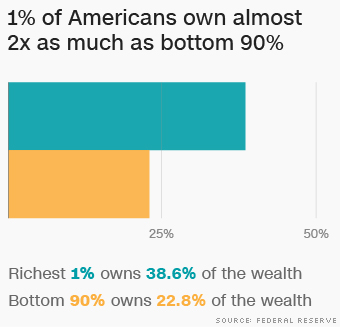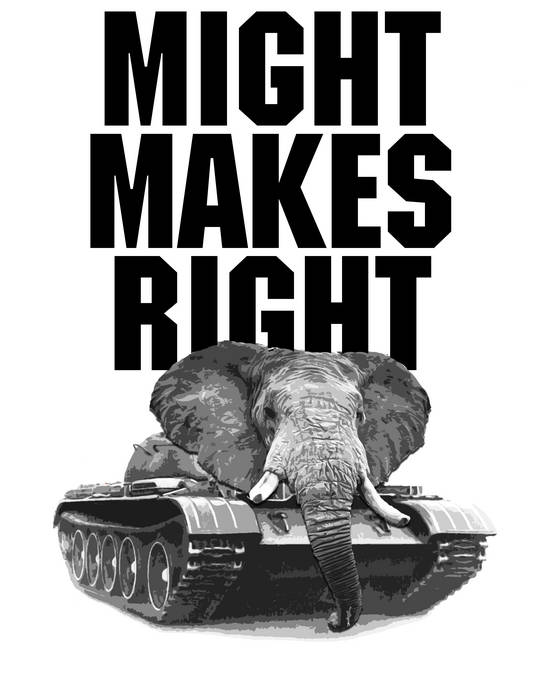The U.S. Already Soaks the Rich
In 2021, the richest 1% paid 45.8% of income taxes.
Up from 33.2% in 2001.
WSJ Editorial Board, March 29, 2024
President Biden is proposing a bevy of tax increases, and his State of the Union address included the familiar call for the wealthy to pay their "fair share." He should examine the Internal Revenue Service data. Recently released figures for 2021 show that the top 1% of Americans reported 26.3% of the country's adjusted gross income, while paying 45.8% of total income taxes.
Is this not a "fair share" to Mr. Biden? Then what would be? Democrats always deploy the language of fairness without defining it or answering those questions. The truth is that the income tax is already steeply progressive. The top 10% of earners in 2021 provided 75.8% of the revenue. (See the nearby bar chart.)
These figures are from a Tax Foundation analysis of the IRS data. They include temporary Covid relief, which skews the results even more progressively. They don't include the payroll tax, which covers lower-income workers, but Mr. Biden is making his "fair share" point about income taxes.
Start with the bottom half of earners, the 76.8 million returns that reported adjusted gross income up to about $46,500. In tax year 2021, they earned 10.4% of the country's total income, while paying 2.3% of all income taxes. Their average tax rate was 3.4%.
The next group is between the bottom half and the top 25%, a total of 38.4 million returns that showed earnings from about $46,500 to $94,500. They reported 17.5% of income, while paying 8.4% of income taxes. Their average tax rate was 7.2%.
Move up to the cohort between the top 25% and 10%, or 23 million returns with earnings from about $94,500 to $170,000. They reported 19.5% of income, paid 13.4% of taxes, and had an average tax rate of 10.3%
.
Between the top 10% and 5% were 7.7 million returns with earnings from about $170,000 to $253,000. They reported 10.6% of income, paid 10.2% of income taxes, and had an average tax rate of 14.3%.
Between the top 5% and 1% were 6.1 million returns with earnings from about $253,000 to $682,500. They reported 15.7% of income, paid 19.9% of all income taxes, and had an average tax rate of 18.9%
.
Finally, we come to the top 1%, another 1.5 million returns with earnings in excess of about $682,500. Their share of income taxes paid was 45.8%, not quite double their share of income. Their average tax rate was 25.9%.
Among the tippy-top 0.1%, or 154,000 returns with earnings above about $3,775,500 a year, the average tax rate was similar, 25.7%.
The burden of income taxes, in other words, falls almost entirely on the top half of earners and disproportionately on the top 1%. Notice that tax rates rise steadily with income, a basic feature of a progressive code. The average income tax take is 10% or less for the middle class, which jumps to more than 25% for the highest earners.
The overall tax burden looks somewhat less progressive if you include the payroll tax, such as the one for Social Security that caps out in 2024 at $168,600 in wage income. But the IRS's income-tax data also leave out "refundable" portions of tax credits, which are treated as outlays and go to lower earners.
Erica York, a senior economist at the Tax Foundation, points to broader tax distribution data for 2020 from the Congressional Budget Office. That year, the CBO says, the bottom 60% of taxpayers had an average income-tax rate that was effectively negative. The lowest quintile paid minus 27.6%. For the middle quintile it was minus 2.4%.
This isn't the story Democrats tell. "No billionaire should pay a lower federal tax rate than a teacher, a sanitation worker, or a nurse," Mr. Biden recently said, while pitching a new wealth tax on assets disguised as "a minimum tax for billionaires of 25%." In a given year, specific ultrawealthy people might pay little or no income taxes, and setting up a foundation is a major loophole. Yet the numbers clearly show in 2021 that on average the top 0.1% of earners forked over to the IRS more than a quarter of their reported incomes.
The truth is that the wealthy are shouldering a huge and rising share of the income-tax burden. (See the nearby line chart.) In 2001 the top 1% paid only 33.2% of the total tab. As that figure has risen, the share paid by most of the rest of us has correspondingly fallen. The bottom 90% of taxpayers in 2001 provided 36.3% of the cash. Twenty years later, that had dropped to 24.2%.
Taxing the rich is popular these days, in part because Republicans are now playing the same tax redistribution game as Democrats. The problem in Washington isn't that the rich refuse to pay their "fair share," whatever that means. The trouble is that with the notable exception for national defense, Mr. Biden's progressive spending ambitions are limitless. Washington could confiscate the income of every billionaire in the country and still not finance what Democrats want to spend.

https://www.wsj.com/articles/u-s-income-taxes-top-1-percent-irs-tax-foundation-joe-biden-fair-share-3394355b?st=4ox7pdoxpntla50&reflink=desktopwebshare_permalink
"Cults don't end well. They really don't."












